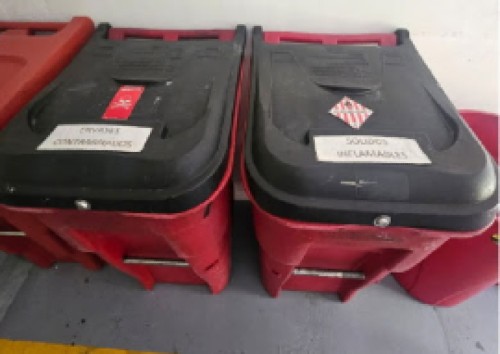WASHINGTON, DC - The Pan American Health Organization (PAHO) Monday said that 13 countries in Latin America and the Caribbean (LAC) are updating strategies and technical capacity to manage and safely dispose of medical waste like syringes, used laboratory and biological products and electronic parts.
 PAHO said that The Bahamas, Belize and Jamaica are the Caribbean countries involved in the project funded by the Canadian government and aimed at building a network of public health officials immersed in medical waste management.
PAHO said that The Bahamas, Belize and Jamaica are the Caribbean countries involved in the project funded by the Canadian government and aimed at building a network of public health officials immersed in medical waste management.
The other countries are Bolivia, Colombia, Costa Rica, Dominican Republic, Ecuador, El Salvador, Guatemala, Honduras, Paraguay and Peru.
The programme is being implemented by PAHO that is supporting public health leaders in updating laws and technical standards, investing in infrastructure, and strengthening transport and final disposal systems through proper licensing, tracking, and environmentally safe landfills.
PAHO said that an estimated 70 per cent of the waste generated by hospitals and medical facilities in Latin America and the Caribbean is inadequately managed, posing a risk to public health and the environment.
It said much of this waste, which often contains bodily fluids, is either dumped in landfills or worse, carelessly discarded and eventually ends up in the ocean. Poor management risks the spread of disease and pollutes the water, air, and soil.
“The tremendous need for medical waste management became even more stark when the COVID-19 pandemic drove a dramatic increase in the generation of waste,” said Luis Francisco Sánchez Otero, regional advisor on chemical safety in PAHO’s Environment and Climate Change unit.
“With Canada’s support, we’ve been able to help countries make progress in developing and implementing better disposal strategies.”
In August, PAHO organized a three-day fact-finding and learning mission in Medellin, Colombia, bringing together 21 public health professionals from 13 countries to study and share best practices in efficient medical waste management.
The group visited a handful of health facilities in Medellin, including basic health posts and hospitals that provide advanced care. The workshop promoted structured dialogue and urged participants to identify and document the gaps in medical waste management in their respective countries.
One lesson gained from the visit and workshop is the need to improve the regulatory frameworks governing medical waste management in Caribbean countries, especially for island nations like The Bahamas and Jamaica, which are geographically limited and already dealing with solid waste management challenges.
“We found that most of the countries here are ahead in terms of legislation. So, we need to work faster and more efficiently in terms of developing our policies, guidelines, and standards,” said Jennifer Savariau, Jamaica’s director of Medical Waste Management.


